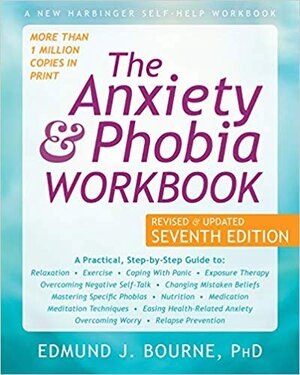
What Is Dialectical Behavior Therapy (DBT)?
DBT is a form of cognitive-behavioral therapy (CBT) developed by Dr. Marsha Linehan, designed to help individuals manage intense emotions, improve interpersonal relationships, and develop healthier coping mechanisms. Originally created to treat borderline personality disorder, DBT has proven effective for a wide range of mental health concerns, including:
- Anxiety and depression
- Emotional dysregulation
- Self-harm and suicidal behaviors
- Substance use disorders
- Post-Traumatic Stress Disorder (PTSD)
- Eating disorders and disordered eating behaviors
- Anger management issues
- Relationship conflicts and interpersonal difficulties
The core philosophy of DBT is the balance between acceptance and change. It helps individuals accept themselves and their emotions while also learning practical skills to make positive changes in their lives.
Why Join a DBT Group for Adults?
While individual DBT therapy focuses on personal goals and challenges, DBT skills groups are more like educational workshops where participants learn and practice specific coping strategies. The group setting provides a unique opportunity to:
- Learn from Shared Experiences: Hearing others’ perspectives can normalize your struggles and provide new insights.
- Build Social Support: Being part of a group reduces feelings of isolation and fosters a sense of connection with others facing similar challenges.
- Practice Skills in Real-Time: Role-playing and group exercises allow you to apply DBT skills in a supportive environment.
- Receive Feedback and Encouragement: Constructive feedback from both peers and the group leader helps reinforce learning and growth.
- Enhance Motivation: The accountability of regular group meetings encourages consistent practice of new skills.
Many participants find that DBT groups offer a powerful combination of structure, support, and personal growth, helping them make lasting changes in their lives.
Core Components of DBT Skills Training
DBT skills groups focus on teaching four key modules that address different aspects of emotional well-being:
1. Mindfulness
Mindfulness is the foundation of DBT. It involves being fully present in the moment without judgment. Mindfulness skills help individuals:
- Increase self-awareness of thoughts, feelings, and behaviors
- Reduce impulsive reactions to emotional triggers
- Improve focus and concentration
- Develop a greater sense of calm and clarity
By practicing mindfulness, individuals learn to observe their experiences without becoming overwhelmed by them.
2. Distress Tolerance
Life inevitably involves stress and painful emotions. Distress tolerance skills teach individuals how to cope with crises and emotional distress without resorting to harmful behaviors. Key strategies include:
- Self-soothing techniques using the five senses
- Distraction strategies to manage overwhelming emotions
- Reality acceptance skills to cope with situations beyond your control
- Crisis survival strategies for intense emotional episodes
These skills help individuals tolerate discomfort and ride out emotional waves without making impulsive decisions they might regret later.
3. Emotion Regulation
Emotion regulation skills help individuals understand, manage, and change intense emotions that may feel overwhelming. This module focuses on:
- Identifying and labeling emotions accurately
- Reducing emotional vulnerability through self-care practices
- Increasing positive emotional experiences
- Applying strategies to decrease the intensity and duration of negative emotions
By learning how emotions work, individuals can respond to them more effectively rather than feeling controlled by them.
4. Interpersonal Effectiveness
Healthy relationships require effective communication, assertiveness, and boundary-setting. Interpersonal effectiveness skills teach individuals how to:
- Ask for what they need while maintaining self-respect
- Set and maintain healthy boundaries in relationships
- Resolve conflicts in constructive ways
- Balance priorities and demands in relationships
These skills are especially helpful for individuals who struggle with people-pleasing, fear of rejection, or difficulty expressing their needs.
What to Expect in a DBT Group for Adults
DBT skills groups are structured and educational, with a focus on learning and practicing new skills each week. A typical DBT group includes:
- Check-Ins: Participants briefly share how they’ve applied DBT skills since the last session and discuss any challenges or successes.
- Review of Previous Skills: The group reviews previously taught skills to reinforce learning and ensure understanding.
- New Skill Instruction: The therapist introduces a new DBT skill, often using handouts, role-plays, or group discussions to illustrate key concepts.
- Skill Practice: Participants engage in exercises to practice applying the skill in real-life situations.
- Homework Assignments: Each week, participants receive assignments to practice the new skill between sessions, fostering real-world application.
DBT groups are led by trained therapists who create a supportive, non-judgmental environment where participants feel safe to learn, share, and grow.
Who Can Benefit from a DBT Group?
DBT groups are beneficial for adults who struggle with:
- Managing intense emotions like anger, sadness, or anxiety
- Frequent mood swings or emotional outbursts
- Impulsive behaviors, such as substance use, self-harm, or binge eating
- Difficulty maintaining healthy relationships or setting boundaries
- Chronic feelings of emptiness, hopelessness, or low self-esteem
- Stress-related disorders or difficulty coping with life transitions
DBT is also effective for individuals diagnosed with borderline personality disorder, PTSD, bipolar disorder, and other mental health conditions involving emotional dysregulation.
Benefits of DBT Group Therapy
Participating in a DBT group offers numerous benefits, including:
- Enhanced Emotional Regulation: Learn how to identify, understand, and manage emotions effectively.
- Improved Relationships: Develop communication and conflict-resolution skills to build healthier connections.
- Greater Resilience: Build coping strategies to handle stress, crisis situations, and emotional distress without harmful behaviors.
- Increased Self-Awareness: Gain insights into thought patterns, behaviors, and emotional triggers.
- Sense of Community: Feel less alone by connecting with others who face similar struggles.
- Accountability and Motivation: Regular group sessions provide structure and encourage consistent practice of skills.
Many participants report that DBT groups help them feel more confident, empowered, and in control of their lives.
Is a DBT Group Right for You?
You might benefit from joining a DBT group if you:
- Feel overwhelmed by emotions or have difficulty managing stress
- Struggle with impulsive behaviors that negatively impact your life
- Experience frequent conflicts in relationships or have trouble setting boundaries
- Want to develop healthier coping strategies for anxiety, depression, or trauma-related symptoms
- Are committed to personal growth and open to learning new skills in a group setting
DBT groups are suitable for individuals both new to therapy and those looking to complement their existing individual therapy with additional skills training.
DBT Groups for Adults at Restorative Counseling Services
At Restorative Counseling Services, we offer a DBT group for adults designed to help participants build emotional resilience, improve relationships, and develop practical coping skills. Our DBT groups are led by experienced, compassionate therapists who create a supportive environment where individuals can learn, grow, and thrive.
Whether you’re struggling with emotional regulation, relationship challenges, or stress management, our DBT group can provide the tools and support you need to create meaningful change in your life.
Conclusion
Learning how to manage emotions, cope with stress, and build healthy relationships is essential for mental well-being. A DBT group for adults offers a powerful combination of skill-building, support, and personal growth. If you’re ready to take control of your emotions and create lasting positive change, consider joining a DBT group at Restorative Counseling Services.







